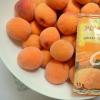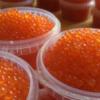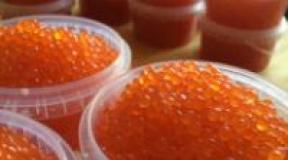Excise taxes in the Russian Federation for a year. But they will provide tax incentives for manufacturers
Basis and legal basis
Excise is an indirect tax, that is, a tax that is included in the price of a product (service), and thus its payment is passed on to the end consumer.
Indirect taxes are one of the main sources of formation of the federal budget revenues, therefore, much attention is paid to the procedure for calculating and paying them. Indirect taxes also include VAT.
Excise taxes are imposed on the so-called excisable goods - alcohol, tobacco, fuel, cars and some motorcycles.
The principles of excise regulation are established by Chapter 22 of the Tax Code of the Russian Federation. Details are often considered in Federal laws and regulations of the Government of the Russian Federation, as well as other by-laws.
Excise taxpayers
- Organizations.
- Individual entrepreneurs.
- Persons whose activities are related to the movement of goods across the customs border of the Eurasian Economic Union
Organizations and persons mentioned above are recognized as taxpayers only if they perform transactions subject to taxation in accordance with Chapter 22 of the Tax Code of the Russian Federation.
Mandatory conditions and registration certificates
Persons carrying out operations with straight-run gasoline, ethyl alcohol, medium distillates, as well as benzene, paraxylene or orthoxylene are required to obtain and register the relevant certificates with the tax authorities.
These certificates are valid for up to one year.
The issuance of certificates or notification of refusal to issue must, by law, take place no later than 30 calendar days from the date of submission to the tax authority of the application and copies of the required documents.
The procedure for issuing a certificate of registration of a person performing operations with straight-run gasoline is approved by Order of the Ministry of Finance of the Russian Federation of 03.10.2006 N 122n.
The procedure for issuing a certificate of registration of an organization performing operations with denatured ethyl alcohol is established by Order of the Ministry of Finance of the Russian Federation of 09.10.2006 N 125n.
The procedure for issuing a certificate of registration of an organization performing operations with benzene, paraxylene or orthoxylene is established by order of the Federal Tax Service of Russia dated October 27, 2015 N ММВ-7-15 / [email protected]
The procedure for issuing a certificate of registration of an organization performing operations with medium distillates is established by Federal Law of 23.11.2015 N 323-FZ "On Amendments to Part Two of the Tax Code of the Russian Federation." certificate of registration of the person working with middle distillates Changes entered into force on 23.01.2016.
The tax authorities may suspend the validity of the certificate for up to 6 months in case of failure to comply with the requirements set out in Art. 179.2, 179.3, 179.4 of the Tax Code of the Russian Federation.
If the violations were not eliminated within the prescribed period, the certificate is canceled, about which the tax authority must notify the taxpayer in writing within 3 days from the date of the decision.
Excise goods
Excisable goods are:
- ethyl alcohol produced from food or non-food raw materials, including denatured ethyl alcohol, raw alcohol, distillates of wine, grape, fruit, cognac, calvados, whiskey;
- alcohol-containing products (solutions, emulsions, suspensions and other types of products in liquid form) with a volume fraction of ethyl alcohol of more than 9%, with the exception of:
- medicines (including homeopathic medicines),
- veterinary drugs, poured in containers of no more than 100 ml;
- perfumery and cosmetic products poured in containers of no more than 100 ml with an alcohol fraction of up to 80% (inclusive) and with an alcohol fraction of up to 90% (inclusive) in the presence of a spray bottle, and with a volume fraction of ethyl alcohol up to 90% poured in containers up to 3 ml (inclusive);
- waste generated in the production of ethyl alcohol from food raw materials, vodkas and alcoholic beverages, subject to further processing and use for technical purposes;
- wine materials, grape must, other fruit must, beer must;
- alcoholic products (vodka, alcoholic beverages, cognacs, wine, fruit wine, liqueur wine, champagne, wine drinks, cider, Poiret, mead, beer, beer-based drinks, other drinks with a volume fraction of ethyl alcohol of more than 0.5% );
- tobacco products;
- passenger cars;
- motorcycles with engine power exceeding 112.5 kW (150 hp);
- automobile gasoline;
- diesel fuel;
- motor oils for diesel and (or) carburetor (injection) engines;
- straight-run gasoline;
- middle distillates;
- aviation kerosene;
- natural gas (in cases stipulated by international treaties of the Russian Federation);
- benzene, paraxylene, orthoxylene;
- electronic nicotine delivery systems;
- liquids for electronic nicotine delivery systems;
- tobacco (tobacco products) intended for consumption by heating.
Pay attention!
The last three points in the list of excisable goods were added to clause 1 of Article 181 of the Tax Code of the Russian Federation by Federal Law of 30.11.2016 N 401-FZ. Thus, since 2017, the list of goods, the price of which includes excise duty, has been expanded. In order to stimulate a healthy lifestyle of citizens, excise taxes are now being levied on electronic cigarettes, liquid nicotine and tobacco consumed by heating.
Object of taxation
Object of taxation Excise taxes include, in particular, the following operations:
- Sale of excisable goods in the territory of the Russian Federation.
- Sale of confiscated and (or) ownerless excisable goods, as well as excisable goods that have been rejected in favor of the state.
- Transfer of excisable goods produced from raw materials supplied by the customer.
- Import of excisable goods into the territory of the Russian Federation and other territories under its jurisdiction.
- Receiving (posting) denatured ethyl alcohol.
- Getting straight-run gasoline.
A complete list of transactions subject to excise duty is contained in article 182 of the Tax Code of the Russian Federation.
Operations not subject to excise duty
The following transactions are exempt from excise taxation:
- Transfer of excisable goods by non-independent structural units to each other for the production of other excisable goods.
- Sale of excisable goods placed under the customs procedure for export outside the territory of the Russian Federation, taking into account losses within the norms of natural loss or import of excisable goods into the port special economic zone from the rest of the territory of the Russian Federation.
- Transfer to the owner or at his instruction to other persons of excisable goods produced from raw materials supplied by the customer, if these goods are sold outside the territory of the Russian Federation in accordance with the customs export procedure, taking into account losses within the limits of natural loss.
- Primary sale (transfer) of confiscated and ownerless excisable goods, which are subject to transfer for industrial processing under the control of customs and tax authorities or destruction.
- Transfer within the structure of one organization:
- produced ethyl alcohol for further production of alcohol-containing perfumery and cosmetic products or alcohol-containing products of household chemicals in metal aerosol packaging;
- rectified ethyl alcohol produced by the taxpayer from raw alcohol, to a division that produces alcoholic and (or) excisable alcohol-containing products;
- produced distillates of wine, grape, fruit, cognac, calvados, whiskey for aging and (or) blending for the purpose of further production (bottling) of alcoholic beverages by the same organization.
Note! The above operations are not subject to taxation only if there is a separate record of operations for the production and sale (transfer) of such excisable goods.
- Importation into the territory of the Russian Federation of excisable goods, which were refused, and which are subject to treatment in state or municipal property, as well as in the case of their placement in the port special economic zone.
These operations are not subject to excise duty only if the excisable goods are actually exported outside the territory of the Russian Federation in the customs procedure for exporting or importing excisable goods into the port special economic zone.
Import and export is confirmed by the submission of all relevant documents to the tax authority.
Pay attention!
Previously, the taxpayer was exempted from paying excise duty when performing such operations only when a bank guarantee was submitted to the tax authority. It is submitted to the inspectorate no later than the 25th day of the month in which the taxpayer is obliged to submit an excise tax return. The period of its validity must be at least 10 months from the date of the expiration of the established period for the taxpayer to fulfill his obligation to pay the excise tax.
However, from July 1, 2017, exporters can obtain exemption from the payment of excise duty upon submission of a surety agreement. The innovation is indicated in clause 2.2 of Art. 184 of the Tax Code of the Russian Federation - in the current version of the Code there is no this clause, it will enter into force on July 1, 2017. The surety is drawn up in accordance with the civil legislation of the Russian Federation by an agreement between the tax authority and the guarantor (a third party, not necessarily a credit institution), in the form approved by the Federal Tax Service ... The term of such an agreement must be at least ten months from the date of expiration of the established period for the exporter to fulfill the obligation to pay the excise tax and not more than one year from the date of the conclusion of the surety agreement. Operations for the issuance of guarantees by a taxpayer who is not a bank, according to the new paragraphs. 15.3 clause 3 of Art. 149 of the Tax Code of the Russian Federation are not subject to taxation.
The new rules apply to suretyship agreements securing the fulfillment of tax obligations that are due after July 1, 2017.
Changes are provided for by Federal Law of 30.11.2016 N 401-FZ.
Excise rates
The rates for various types of excisable goods are specified in Art. 193 of the Tax Code of the Russian Federation.
Below is a table comparing excise rates in 2016 and 2017.
|
Types of excisable goods |
Tax rate (in percent and (or) rubles per unit of measurement) |
|
|
Ethyl alcohol produced from food or non-food raw materials, including denatured ethyl alcohol, raw alcohol, distillates of wine, grape, fruit, cognac, calvados, whiskey: |
||
|
sold to organizations engaged in the production of alcohol-containing perfumery and cosmetic products in metal aerosol packaging and (or) alcohol-containing household chemical products in metal aerosol packaging, and to organizations paying an advance payment of excise duty (including ethyl alcohol imported into the Russian Federation from the territories of the member states Of the Eurasian Economic Union, which is a product of the Eurasian Economic Union), and (or) transferred when performing transactions recognized as an object of taxation by excise taxes in accordance with subparagraph 22 of paragraph 1 of Article 182 of this Code, and (or) sold (or transferred by manufacturers in the structure of one organization) for the production of goods not recognized as excisable in accordance with subparagraph 2 of paragraph 1 of Article 181 of this Code |
0 rubles for 1 liter of anhydrous ethyl alcohol contained in an excisable product |
|
|
sold to organizations that do not pay an advance payment of excise tax (including ethyl alcohol imported into the Russian Federation, which is not a product of the Eurasian Economic Union), and (or) transferred within the structure of one organization when a taxpayer performs transactions recognized as an object of excise taxation, with the exception of transactions provided for by subparagraph 22 of paragraph 1 of Article 182 of this Code, as well as with the exception of ethyl alcohol sold (or transferred by producers in the structure of one organization) for the production of goods not recognized as excisable in accordance with subparagraph 2 of paragraph 1 of Article 181 of this Code, and ethyl alcohol sold to organizations engaged in the production of alcohol-containing perfumery and cosmetic products in metal aerosol cans and (or) alcohol-containing household chemical products in metal aerosol cans |
102 rubles for 1 liter of anhydrous ethyl alcohol contained in an excisable product |
107 rubles for 1 liter of anhydrous ethyl alcohol contained in an excisable product |
|
Alcohol-containing perfumery and cosmetic products in metal aerosol packaging |
0 rubles for 1 liter of anhydrous ethyl alcohol contained in an excisable product |
0 rubles for 1 liter of anhydrous ethyl alcohol contained in an excisable product |
|
Alcohol-containing household chemical products in metal aerosol packaging |
0 rubles for 1 liter of anhydrous ethyl alcohol contained in an excisable product |
0 rubles for 1 liter of anhydrous ethyl alcohol contained in an excisable product |
|
Alcohol-containing products (with the exception of alcohol-containing perfumery and cosmetic products in metal aerosol cans and alcohol-containing household chemical products in metal aerosol cans) |
||
|
Alcoholic products with a volume fraction of ethyl alcohol over 9 percent (with the exception of beer, wines, fruit wines, sparkling wines (champagne), wine drinks made without the addition of rectified ethyl alcohol, produced from food raw materials, and (or) alcoholized grape or other fruit wort, and (or) wine distillate, and (or) fruit distillate) |
500 rubles for 1 liter of anhydrous ethyl alcohol contained in an excisable product |
523 rubles for 1 liter of anhydrous ethyl alcohol contained in an excisable product |
|
Alcoholic products with a volume fraction of ethyl alcohol up to 9 percent inclusive (except for beer, drinks made on the basis of beer, wines, fruit wines, sparkling wines (champagnes), cider, Poiret, mead, wine drinks made without the addition of rectified ethyl alcohol, made from food raw materials, and (or) alcoholized grape or other fruit must, and (or) wine distillate, and (or) fruit distillate) |
400 rubles for 1 liter of anhydrous ethyl alcohol contained in an excisable product |
418 rubles for 1 liter of anhydrous ethyl alcohol contained in an excisable product |
|
Wines, with the exception of wines with a protected geographical indication, with a protected appellation of origin, as well as sparkling wines (champagnes), fruit wines, wine drinks made without the addition of rectified ethyl alcohol, produced from food raw materials, and (or) alcoholized grape or other fruit must, and (or) wine distillate, and (or) fruit distillate |
9 rubles for 1 liter |
10 rubles for 1 liter |
|
Protected Geographical Indication, Protected Designation of Origin wines, excluding sparkling wines (champagnes) |
5 rubles for 1 liter |
5 rubles for 1 liter |
|
Cider, Poiret, Mead |
9 rubles for 1 liter |
10 rubles for 1 liter |
|
Sparkling wines (champagne), with the exception of sparkling wines (champagnes) with a protected geographical indication, with a protected appellation of origin |
26 rubles for 1 liter |
27 rubles for 1 liter |
|
Sparkling wines (champagne) with protected geographical indication, with protected appellation of origin |
13 rubles for 1 liter |
14 rubles for 1 liter |
|
Beer with a normative (standardized) content of the volume fraction of ethyl alcohol up to 0.5 percent inclusive |
0 rubles for 1 liter |
0 rubles for 1 liter |
|
Beer with a normative (standardized) content of the volume fraction of ethyl alcohol over 0.5 percent and up to 8.6 percent inclusive, beverages made on the basis of beer |
20 rubles for 1 liter |
21 rubles for 1 liter |
|
Beer with a normative (standardized) content of the volume fraction of ethyl alcohol over 8.6 percent |
37 rubles for 1 liter |
39 rubles for 1 liter |
|
Pipe tobacco, smoking, chewing, sucking, snuffing, hookah tobacco (excluding tobacco used as raw materials for the production of tobacco products) |
2,000 rubles per 1 kg |
2 520 rubles per 1 kg |
|
Cigars |
141 rubles for 1 piece |
171 rubles for 1 piece |
|
Cigarillos (cigaritas), bidi, kretek |
2,112 rubles for 1,000 pieces |
2,428 rubles for 1,000 pieces |
|
Cigarettes, cigarettes |
1,250 rubles per 1,000 pieces + 11 percent of the estimated cost calculated based on the maximum retail price, but not less than 1,330 rubles per 1,000 pieces |
1,562 rubles per 1,000 pieces + 14.5 percent of the estimated cost calculated based on the maximum retail price, but not less than 2,123 rubles per 1,000 pieces |
|
Tobacco (tobacco products) intended for consumption by heating |
4 800 rubles per 1 kg |
|
|
Electronic nicotine delivery systems |
40 rubles for 1 piece |
|
|
Liquids for electronic nicotine delivery systems |
10 rubles for 1 ml |
|
|
Passenger cars: |
||
|
with engine power up to 67.5 kW (90 HP) inclusive |
0 rubles for 0.75 kW (1 hp) |
|
|
with engine power over 67.5 kW (90 HP) and up to 112.5 kW (150 HP) inclusive |
41 rubles for 0.75 kW (1 hp) |
43 rubles for 0.75 kW (1 hp) |
|
with engine power over 112.5 kW (150 HP) |
||
|
Motorcycles with engine power over 112.5 kW (150 hp) |
402 rubles for 0.75 kW (1 hp) |
420 rubles for 0.75 kW (1 hp) |
|
Car gasoline: |
||
|
class 5 |
7 530 rubles per 1 ton |
10 130 rubles per 1 ton |
|
not conforming to class 5 |
10 500 rubles per 1 ton |
13 100 rubles per 1 ton |
|
Diesel fuel |
4 150 rubles per 1 ton |
6 800 rubles per 1 ton |
|
Engine oils for diesel and (or) carburetor (injection) engines |
6,000 rubles per 1 ton |
5 400 rubles per 1 ton |
|
Straight-run gasoline |
10 500 rubles per 1 ton |
13 100 rubles per 1 ton |
|
Benzene, paraxylene, orthoxylene |
3,000 rubles per 1 ton |
2 800 rubles per 1 ton |
|
Aviation kerosene |
3,000 rubles per 1 ton |
2 800 rubles per 1 ton |
|
Middle distillates |
4 150 rubles per 1 ton |
7 800 rubles per 1 ton |
In 2017, the new clause 9 of Art. 194 of the Tax Code of the Russian Federation also introduced an increasing coefficient T to the specific rate of excise duty on cigarettes, and (or) cigarettes, and (or) cigarillos, and (or) bidi, and (or) kretek. It is used for the sale of these products in September - December in volumes exceeding the average monthly volume of sales for the previous calendar year. This is done to ensure that excise taxes from sales are received evenly throughout the year, since sales of such products usually peak at the end of the tax period.
If different tax rates are set for excisable goods, the tax base is determined separately for each of them.
The rates are applied depending on the established order:
- firm in an absolute amount (in rubles and kopecks) per unit of measurement;
- ad valorem (percentage);
- combined, consisting of solid (specific) and ad valorem.
Revenues in foreign currency are converted into rubles at the exchange rate of the Central Bank of the Russian Federation as of the date of sale of excisable goods.
Features established for tobacco products
Determination of the estimated cost of tobacco products has its own characteristics.
The taxpayer is obliged to submit to the tax authority at the place of registration (or to the customs authority at the place of registration of excisable goods) a notification containing information on the maximum and minimum retail prices for each brand (name) of tobacco products. It is provided every month, no later than 10 calendar days before the beginning of the month from which the maximum prices indicated in it will be applied.
Information on the maximum retail prices specified in notifications received by tax and customs authorities is published in electronic digital form in the public information system of the federal executive body authorized for control and supervision in the field of taxes and fees (federal executive body authorized in the field of customs).
The maximum retail price is the price above which a pack of tobacco products cannot be sold to consumers by retail, catering, service industries, and individual entrepreneurs. These prices must be marked on each pack of tobacco products separately for each brand (name). They are valid for at least one calendar month.
If, within one month, a taxpayer sells tobacco products of the same brand with different maximum retail prices indicated on the pack, then the estimated cost is determined as the product of each maximum retail price indicated on the pack of tobacco products and the number of packs sold, which indicate the corresponding maximum retail price. price.
The same rule applies to tobacco products imported into the Russian Federation with different maximum retail prices.
Taxable period
Calendar month.
Determination of the date of sale or receipt of excisable goods
Implementation date(transfer) of excisable goods is defined as the day of shipment (transfer) of the relevant goods, incl. the structural unit that carries out their retail sale.
- When excisable goods produced from tolling raw materials are transferred on the territory of the Russian Federation to the owner of these raw materials, or to other persons in ownership as payment for services for the production of tolling raw materials, the date of transfer is the date of signing the act of acceptance and transfer of excisable goods.
- The date of receipt of straight-run gasoline is the day of its receipt by an organization that has a certificate for processing.
- The date of receipt of straight-run gasoline produced as a result of rendering services to it for the processing of raw materials (materials) or produced in the specified structure from raw materials (materials) belonging to the specified person on the basis of ownership is the day of its posting by a person who has a certificate for processing straight-run gasoline.
- In the event of a shortage of excisable goods, the date of their sale (transfer) is determined as the day the shortage was discovered (except for natural loss within the norms).
- The date of receipt of denatured ethyl alcohol is the day of receipt (posting) by an organization that has a certificate for the production of non-alcohol-containing products of denatured ethyl alcohol.
- When purchasing benzene, paraxylene, orthoxylene in ownership, the date of their sale is the day of its receipt by a person who has a certificate for performing transactions with benzene, paraxylene or orthoxylene.
- Upon posting by the specified person of benzene, paraxylene or orthoxylene produced as a result of the provision of services to the specified person for the processing of raw materials (materials) or posting in the structure of the specified person of benzene, paraxylene or orthoxylene produced in the specified structure from raw materials (materials) belonging to the specified person by right of ownership the posting date is the day of posting it by a person who has a certificate for transactions with benzene, paraxylene, orthoxylene.
- When purchasing aviation kerosene under an agreement with a Russian organization, the date of its receipt is the day of its receipt by a person included in the Register of Civil Aviation Operators of the Russian Federation and having a certificate (certificate) of the operator.
- When middle distillates are acquired under an agreement with a Russian organization, the date of receipt is the date of their receipt by a Russian organization that has a certificate provided for in Article 179.5 of the Tax Code.
- The date of sale of middle distillates is the last day of the month in which a full package of documents provided for in paragraph 23 of Article 201 of the Tax Code of the Russian Federation is collected, when sold in the territory of the Russian Federation by Russian organizations:
- licensed to carry out loading and unloading activities
- that have concluded agreements with organizations included in the register of bunker fuel suppliers, on the basis of which the facilities are used through which bunkering (refueling) of water vessels is carried out
- foreign organizations of middle distillates owned by these Russian organizations on the right of ownership and exported outside the territory of the Russian Federation as supplies on water vessels in accordance with the law of the Eurasian Economic Union
Forms of registers of invoices, the procedure for their submission and stamping by tax authorities were approved by Order of the Ministry of Finance of the Russian Federation of 03.10.2006 N 123n.
Terms of payment of excise duty
When selling produced excisable goods, the excise tax must be paid in full no later than the 25th day of the next month.
The excise tax is paid no later than the 25th day of the third month following the expired tax period for the sale of excisable goods by taxpayers:
- having a certificate of registration of a person performing operations with straight-run gasoline - when performing operations with straight-run gasoline;
- having a certificate of registration of a person performing transactions with benzene, paraxylene or orthoxylene, - when performing transactions with benzene, paraxylene or orthoxylene;
- having a certificate of registration of an organization performing operations with middle distillates - when performing operations with middle distillates;
- having a certificate of registration of an organization performing operations with denatured ethyl alcohol - when performing operations with denatured ethyl alcohol;
- included in the Register of Civil Aviation Operators of the Russian Federation and having a certificate (certificate) of the operator, - when performing operations with aviation kerosene.
The excise tax is paid no later than the 25th day of the sixth month following the tax period in which transactions are made that are recognized as an object of taxation in accordance with subparagraphs 30 and 31 of paragraph 1 of Article 182 of the Tax Code (we are talking about the sale of middle distillates by Russian organizations to foreign organizations in some cases).
As a general rule, the excise tax on excisable goods is paid at the place of their production.
But there are also exceptions:
- upon receipt (posting) of denatured ethyl alcohol, it is paid at the place of posting of the excisable goods acquired into the ownership;
- upon receipt of straight-run gasoline and medium distillates, the excise tax is paid at the location of the taxpayer;
- upon receipt by organizations:
- included in the register of bunker fuel suppliers,
- licensed to carry out loading and unloading activities (in relation to dangerous goods on railway transport, inland water transport, in seaports),
- that have entered into agreements with organizations included in the register of bunker fuel suppliers, on the basis of which facilities are used through which bunkering (refueling) of water vessels is carried out,
- foreign organizations of middle distillates owned by the said Russian organizations on the right of ownership and exported outside the territory of the Russian Federation as supplies on water vessels in accordance with the law of the Eurasian Economic Union,
- included in the register of suppliers of bunker fuel, middle distillates, acquired in ownership and placed under the customs export procedure,
- foreign organizations performing work (rendering services) related to regional geological study, geological study, exploration and (or) production of hydrocarbons on the continental shelf of the Russian Federation.
Excise duty is paid at the location of the taxpayer or at the location of separate subdivisions in terms of their operations.
The terms and procedure for paying excise duty when importing excisable goods into the territory of the Russian Federation and other territories under its jurisdiction are established taking into account the provisions of the customs legislation of the Customs Union and the legislation of the Russian Federation on customs.
Producers of alcoholic and excisable alcohol-containing products are exempt from payment of an advance payment of excise duty, provided that a bank guarantee is submitted to the tax authority simultaneously with a notice of exemption from payment of an advance payment of excise duty.
The tax authorities demand that the guarantor bank repay the amount of the advance payment of the excise duty secured by the bank guarantee in the event of non-payment or incomplete payment by the taxpayer of the amount of the excise duty.
Tax reporting on excise taxes
Tax returns must be submitted to the tax authorities at the place of their location (or the location of separate subdivisions in which taxpayers are registered) for the tax period no later than the 25th day of the month following the expired tax period.
Taxpayers carrying out operations with straight-run gasoline, denatured ethyl alcohol, benzene, paraxylene or orthoxylene, middle distillates or aviation kerosene submit their declarations no later than the 25th day of the third month following the reporting one.
Taxpayers,
- bunker fuel suppliers included in the register,
- having a license to carry out loading and unloading activities (in relation to dangerous goods on railway transport, inland water transport, in seaports),
- have entered into agreements with organizations included in the register of bunker fuel suppliers, on the basis of which facilities are used through which bunkering (refueling) of water vessels is carried out,
- foreign organizations of middle distillates owned by the aforementioned Russian organizations on the right of ownership and exported outside the territory of the Russian Federation as supplies on water vessels in accordance with the law of the Eurasian Economic Union,
- included in the register of suppliers of bunker fuel, middle distillates, acquired in ownership and placed under the customs export procedure,
- foreign organizations performing work (rendering services) related to regional geological study, geological study, exploration and (or) production of hydrocarbons on the continental shelf of the Russian Federation
submit a tax return no later than the 25th day of the sixth month following the tax period in which the relevant transactions were performed.
The form of the tax declaration on excise taxes on excisable goods, with the exception of tobacco products, was approved by Order of the Federal Tax Service of Russia dated January 12, 2016 N ММВ-7-3 / [email protected].
The tax declaration form for excise taxes on tobacco products was approved by Order of the Ministry of Finance of Russia dated November 14, 2006 N 146n (as amended on June 17, 2011).
Advance payments of excise taxes
Organizations engaged in the production of alcoholic beverages in Russia (with the exception of wines, fruit wines, sparkling wines, cider, Poiret, mead, beer and beer-based drinks) and excisable alcohol-containing products are required to pay an advance payment of excise duty.
Organizations engaged in the production of alcohol-containing perfumery and cosmetic products in metal aerosol cans and (or) alcohol-containing household chemical products in metal aerosol cans are exempt from the obligation to pay an advance payment of excise duty.
An advance payment is a preliminary payment of excise tax on alcohol or alcohol-containing products prior to the purchase of ethyl alcohol.
The amount of the advance payment of excise tax is determined based on the total volume of purchased ethyl alcohol, including raw alcohol (in liters of anhydrous alcohol), and the corresponding excise rate.
The advance payment must be paid by the 15th day of each month based on the total volume of ethyl alcohol, the purchase or import of which into the Russian Federation will be carried out in the next month.
When paying an advance, you must submit to the tax authority by the 18th day of the month:
- a copy of the payment document confirming the transfer of the advance to the budget;
- a copy of the bank statement confirming the write-off of the advance from the current account;
- a notice of payment of an advance payment in four copies, including one in electronic form.
These documents must be kept for 4 years - both with the taxpayer and with the tax authority.
If a manufacturer of alcoholic beverages is exempted from paying an advance, he is obliged to provide a tax bank guarantee and a notice of this exemption by the 18th.
Pay attention!
Taxpayers, the average number of employees of which for the previous calendar year exceeds 25 people, as well as newly created organizations, the number of employees of which exceeds the specified limit, submit tax returns and calculations only in electronic form.
More information about the submission of electronic reporting can be found
A complete list of federal electronic document management operators operating in a certain region can be found on the official website of the Office of the Federal Tax Service of Russia for a constituent entity of the Russian Federation.
Distribution
Excise taxes are credited to the budget and distributed in accordance with the Budget Code of the Russian Federation and Federal Law of December 19, 2016 N 415-FZ "On the federal budget for 2017 and for the planning period of 2018 and 2019".
Excise taxes: what's new in 2017?
In 2017:
- The list of excisable goods has been expanded by 3 points - in accordance with the amendments made to paragraph 1 of Article 181 of the Tax Code of the Russian Federation by Federal Law of 30.11.2016 N 401-FZ, since 2017 excise taxes have been imposed on electronic systems for the delivery of nicotine (electronic cigarettes), liquids for electronic cigarettes with content of nicotine and tobacco intended for consumption by heating. The excise rates for these goods are: electronic nicotine delivery systems - 40 rubles per piece; liquids for them - 10 rubles per 1 ml.; tobacco for consumption by heating - 4,800 rubles per 1 kg.
- From July 1, 2017, the rules for exemption from paying excise taxes when selling goods outside the Russian Federation are changing - an alternative to a bank guarantee appears, namely, a surety agreement, which can be drawn up between a tax authority and a third party - not necessarily a bank. Previously, exporters could be exempted from paying excise duty only on the basis of a bank guarantee, and this innovation expands their capabilities. Changes were made to clause 3 of Art. 184 of the Tax Code of the Russian Federation - new rules (the possibility of using a surety agreement instead of a bank guarantee) apply only to taxes due after July 1, 2017.
- The excise rates have been increased for:
- ethyl alcohol sold by organizations that do not pay an advance, from 102 to 107 rubles per liter of contained ethyl alcohol;
- alcohol-containing products (except for products in aerosol packaging) from 400 to 418 rubles per liter of contained ethyl alcohol;
- alcohol with an ethyl alcohol content of over 9% (except for beer and wines) from 500 to 523 rubles per liter of contained ethyl alcohol;
- alcohol with an ethyl alcohol content of up to 9% (except for beer and wines) from 400 to 418 rubles per liter of contained ethyl alcohol;
- wines (except for wines with a protected geographical indication) from 9 to 10 rubles per liter;
- cider, poiret and mead from 9 to 10 rubles per liter;
- sparkling wines (except wines with protected geographical indication) from 26 to 27 rubles per liter;
- sparkling wines with protected geographical indication from 13 to 14 rubles per liter;
- beer with an ethyl alcohol content of 0.5% to 8.6% from 20 to 21 rubles per liter;
- beer with an ethyl alcohol content of over 8.6% from 37 to 39 rubles per liter;
- tobacco (except for raw materials for production) from 2,000 to 2,520 rubles per kg;
- cigars from 141 to 171 rubles per piece;
- cigarillos, bidi, kretek from 2,112 to 2,428 rubles per 1,000 pieces;
- cigarettes, cigarettes with 1,250 rubles for 1,000 pieces + 11% of the estimated retail maximum price up to 1,562 rubles for 1,000 pieces + 14.5% of the estimated retail maximum price;
- cars with power from 90 to 150 hp from 41 rubles to 43 rubles for 1 hp;
- cars with power over 150 hp from 402 to 420 rubles per 1 hp;
- motorcycles with power over 150 hp from 402 to 420 rubles per 1 hp;
- class 5 motor gasoline from 7 530 to 10 130 rubles per 1 ton;
- motor gasoline that does not correspond to class 5, from 10,500 to 13,100 rubles per 1 ton;
- diesel fuel from 4,150 to 6,800 rubles per 1 ton;
- straight-run gasoline from 10,500 to 13,100 rubles per ton;
- middle distillates from 4,150 to 7,800 rubles per ton.
- Reduced excise rates for:
- motor oils for engines from 6,000 to 5,400 rubles per 1 ton;
- benzene, paraxylene, orthoxylene and aviation kerosene from 3,000 to 2,800 rubles per ton.
- In 2017, the new clause 9 of Art. 194 of the Tax Code of the Russian Federation introduced an increasing coefficient T to the specific rate of excise duty on cigarettes, and (or) cigarettes, and (or) cigarillos, and (or) bidi, and (or) kretek. It is used for the sale of these products in September - December in volumes exceeding the average monthly volume of sales for the previous calendar year. This is done to ensure that excise taxes from sales are received evenly throughout the year, since sales of such products usually peak at the end of the tax period.
- Amendments were made to paragraph 2 of Article 200 of the Tax Code of the Russian Federation by Federal Law of 30.11.2016 N 401-FZ. According to the addition, when the acquired excisable goods are used in the tax period for the production of both excisable and non-excisable goods, the procedure for determining the amount of deduction must be determined by the taxpayer himself and fixed in the tax accounting policy.
You can clarify the order:
Pay attention!
Upon payment of arrears on all taxes from October 1, 2017, the rules for calculating penalties will change. In case of a long delay, large amounts of interest will have to be paid - this applies to arrears that arose after October 1, 2017. Changes have been made to the rules for calculating penalties, which are established for organizations in paragraph 4 of Art. 75 of the Tax Code of the Russian Federation.
If, starting from the specified date, payment is overdue by more than 30 days, the penalty will have to be calculated as follows:
- based on 1/300 of the refinancing rate of the Central Bank of the Russian Federation, in effect from the 1st to the 30th calendar days (inclusive) of such a delay;
- based on 1/150 of the refinancing rate of the Central Bank of the Russian Federation, effective from the 31st calendar day of delay.
In the event of a delay of 30 calendar days or less, the legal entity will pay a penalty based on 1/300 of the refinancing rate of the Central Bank of the Russian Federation.
Changes are provided for by Federal Law of 05/01/2016 N 130-FZ.
When paying arrears before October 1, 2017, the number of days of delay does not matter, the rate in any case will be 1/300 of the Central Bank's refinancing rate. Recall that since 2016, the refinancing rate is equal to the key rate.
Tax deductions
According to article 200 of the Tax Code of the Russian Federation, payers of excise taxes have the right to reduce the amount of tax on excisable goods by the tax deductions established by this norm. According to clause 2 of this norm, the amount of excise paid by the taxpayer when importing excisable goods into the territory of the Russian Federation that have acquired the status of goods of the Customs Union, subsequently used as raw materials for the production of excisable goods, are subject to deductions.
When calculating the excise tax on alcohol-containing products and alcoholic products (except for natural wines without alcohol), tax deductions are made within the amount of excise tax calculated for excisable goods used as raw materials produced in the Russian Federation, based on the volume of goods used and the excise rate established by clause . 1 tbsp. 193 of the Tax Code of the Russian Federation in relation to ethyl and cognac spirits sold to organizations that pay an advance payment of excise duty.
When using goods imported into the territory of the Russian Federation as raw materials, tax deductions are made within the amount of excise duty calculated based on the volume of goods used and the excise rate established by clause 1 of Art. 193 in respect of ethyl and cognac spirits sold to organizations that do not pay an advance payment of excise duty.
To use tax deductions:
- excise duty must be presented to the payer for payment;
- paid by the taxpayer;
- excisable goods must be used as raw materials for production.
According to clause 3 of Article 201 of the Tax Code of the Russian Federation, deductions are made in terms of the cost of the corresponding excisable goods used as the main raw materials, actually included in the costs of producing other excisable goods, which are deducted when calculating corporate income tax.
Previously, the issue remained unresolved - how to determine the amount of deduction if the goods were used as raw materials at the same time in the production of excisable and non-excisable goods.
In 2017, the uncertainty was eliminated - amendments were made to paragraph 2 of Article 200 of the Tax Code of the Russian Federation by the Federal Law of 30.11.2016 N 401-FZ. According to the addition, when the acquired excisable goods are used in the tax period for the production of both excisable and non-excisable goods, the procedure for determining the amount of deduction must be determined by the taxpayer himself and fixed in the tax accounting policy.
You can clarify the order:
- when the production technology changes;
- from the beginning of the new tax period, but not earlier than after the expiration of 24 consecutive tax periods.
The authorities proposed to abolish benefits for producers of Russian branded alcohol
Domestic winemakers producing protected wines will be deprived of reduced excise rates, follows from the "Main directions of budgetary and tax policy." WTO rules require equalizing excise taxes on Russian and imported wines
Photo: Sergey Malgavko / TASS
The Ministry of Finance in the draft "Main directions of budgetary, tax and customs-tariff policy" for 2019-2021, discussed today in the State Duma (* .pdf), proposed a number of significant changes in the excise taxation of wine products. The main one is the abolition from 2019 of the reduced excise tax on wines and champagne with a protected geographical indication (PGI) and a protected designation of origin (ZNMP). Since wines from PGI and ZNMP can only be Russian wines made from Russian grapes, the proposal of the Ministry of Finance means that excise taxes on domestic and imported wines will be equalized.
According to the rules of the WTO
Now excise taxes on still wines without PGI and ZNMP are 18 rubles. per liter, for sparkling wines without protection - 36 rubles. per liter, and for protected wines and sparkling wines - 5 and 14 rubles. respectively. The Ministry of Finance and the FCS in May last year that, according to Russian law, imported wines cannot be classified as wines with PGI / ZNMP, which means that they are subject to the usual excise tax, and not a reduced one. After that, wine importers began to claim that excise tax preferences for Russian winemakers violate the rules of the World Trade Organization (WTO). In October 2017, the Minister of Economic Development Maxim Oreshkin confirmed that the European Union has claims under the WTO against Russian excise taxes on imported wines.
According to the WTO rules, it is impossible to create tax preferences for similar local goods, so the preferential excise tax on wines from PGI did not fit into the organization's norms, says Aleksandr Stavtsev, head of WineRetail. The purpose of the equalization of excise taxes is “to create favorable conditions for the development of winemaking in Russia, which at the same time would meet the norms of international law, taken by Russia on international obligations,” the press service of the Ministry of Finance confirmed to RBC.
If the proposal of the Ministry of Finance is accepted, the excise rates on domestic and imported wines will become the same: 18 rubles. for still wines and 36 rubles. for sparkling wine. In 2020, according to the current legislation, they will grow by 1 ruble. - up to 19 and 37 rubles. In the draft "Main Directions", the Ministry of Finance says that the rates of all excise taxes already established for 2019-2020 will not change, and for 2021 they will be indexed by the forecasted inflation rate (4%). Based on this, excise taxes on still and sparkling wines in 2021 will amount to 20 and 38 rubles. respectively.
From own grapes
The initiative of the Ministry of Finance will equalize in excise taxes not only Russian and imported wines, but also domestic wines with and without PGI / ZNMP. However, in order to preserve the incentive for domestic winemakers to create production of protected wines, the Ministry of Finance intends to introduce excise taxes on grapes used for the production of wine, champagne, cognac distillate, and to those producers who use their own grapes, to provide a tax deduction "with the use of a multiplying coefficient."
The development of own vineyards is laid down in the development of viticulture and winemaking in the Russian Federation for the period up to 2025 - in particular, we are talking about "stimulating the growth of the number of small wineries in which the production of wine products from their own grapes is carried out." From the document of the Ministry of Finance it follows that wine producers who do not grow grapes themselves, but buy them from other Russian enterprises, will not be entitled to a deduction.
So far, very little wine is produced in Russia from PGI and ZNMP, so the receipts of excise taxes from them are symbolic. In 2017, the consolidated budget collected only 88 million rubles. excise taxes on protected wines and champagnes; at the same time, excise taxes on imported wines, champagne and wine drinks totaled 6.2 billion rubles. (data from the Federal Treasury).
At the end of 2017, about 4-5 million bottles of wine from PGI were produced in Russia, which corresponds to no more than 1.5% of the total volume of wine production, the president of the Union of Winegrowers and Winemakers Leonid Popovich cites statistics. However, according to him, the production of such wines is constantly growing, so today their share may already be about 2-3%.
Equalization of Russian producers and importers will have a bad effect on the Russian wine market, Popovich said. However, the tax deduction for growers who use their own grapes gives hope that the negative effect will be mitigated, he adds. At the same time, it is important that the law provides for a deduction for the use of not "own", but "produced in Russia" grapes - not all winemakers are ready to grow the required amount of grapes, but they can buy it from other Russian producers, says Popovich.
In recent years, Russian wine producers have struggled to achieve minimum preferential conditions, and the proposal of the Ministry of Finance largely negates this work, says Pavel Titov, president of the Abrau Dyurso wine house. Abrau Dyurso itself produces part of the wine from its own grapes and part from imported wine material, so the current benefits do not apply to all production, Titov explained. On the whole, the ministry's initiative is not yet completely clear - for example, a wine producer almost never has exclusively “his own grapes,” he says. And it will be difficult to pay the excise tax for grapes, even taking into account the deduction, as a result, this will again lead to the producers' debt burden, Titov concludes.
The press service of the Ministry of Finance clarified to RBC that the tax deduction will be provided to producers of wine products of the “full production cycle” using “any grapes” as raw materials (that is, including those purchased from other Russian legal entities). “Specific proposals with the most optimal size of tax deduction, increasing coefficient, etc. will be determined later. These issues are still being discussed, ”the press service added.
The Ministry of Finance also proposed to levy excise taxes on "wine drinks without the addition of ethyl alcohol" in the same amount as on champagne. Now such drinks, often disguised as champagne, are subject to excise tax at a rate of 18 rubles. per liter, like regular wine. The Ministry of Finance, therefore, proposes to increase the excise tax on them to 36 rubles. Equating excise rates on wine drinks masquerading as champagne with those on champagne is a long-awaited and fair measure, says Popovich, and aims to remove economic incentives for making such drinks.
Excise taxes on perfume
Another important measure of excise regulation proposed by the Ministry of Finance is the inclusion in the list of excisable goods of any alcohol-containing perfumery and cosmetic products, regardless of the volume of containers in which they are poured. At the same time, it is proposed to introduce a zero excise rate on such products (now the zero excise tax applies only to perfumery and cosmetics in metal aerosol packaging). In addition, the Ministry of Finance proposes to give such manufacturers the right to a tax deduction in the amount of the excise tax calculated on the purchase of ethyl alcohol, if the manufacturer documents the use of alcohol for the production of perfumery and cosmetic products.
The Ministry of Finance previously prepared a bill containing similar proposals. The idea of the initiative is to additionally control the turnover of ethyl alcohol by means of tax regulation and restrict the turnover of alcohol-containing products used as surrogate alcohol. There is no excise tax to the budget on the sale of perfumery at a zero rate (that is, there is no fiscal logic here), but the manufacturer is obliged to submit an additional excise tax declaration, which shows how much alcohol-containing products have been produced.
Participants of the perfumery and cosmetic industry criticized the draft law of the Ministry of Finance then. They warned that the additional burden on the bona fide market participants in the form of an increase in the number of reporting (although they are already closely monitored by regulators), and this will not affect the producers of alcohol-based "dual-use" liquids in any way. It is better to deal with surrogates by setting minimum retail prices for alcohol-containing perfumery and cosmetic products at the level of the retail price for vodka, it was said in business responses to the draft law of the Ministry of Finance. As a result, the Ministry of Economic Development, within the framework of the regulatory impact assessment procedure, did not support the draft law and asked the Ministry of Finance to finalize it.
A table with excise rates for 2017 is given in this material for accountants. Actual rates for excisable goods are necessary for the correct calculation and transfer of the required amount to the budget.
Types of bets
Excise rates depend on the type of goods and are set for 2017 by article 193 of the Tax Code of the Russian Federation.
Goods recognized as excisable are listed in paragraph 1 of Article 181 of the Tax Code of the Russian Federation. Excise goods include:
- ethyl alcohol from all types of raw materials;
- alcohol-containing products (solutions, emulsions, suspensions and other types of products in liquid form) with a volume fraction of ethyl alcohol of more than 9%;
- alcoholic products (drinking alcohol, vodka, alcoholic beverages, cognacs, wine, beer, beer-based drinks and other drinks with a volume fraction of ethyl alcohol of more than 1.5%);
- tobacco products;
- cars;
- motorcycles with engine power exceeding 112.5 kW (150 hp);
- automobile gasoline;
- diesel fuel;
- motor oils for diesel and (or) carburetor (injection) engines;
- straight-run gasoline;
- benzene, paraxylene, orthoxylene;
- aviation kerosene;
- natural gas.
Calculation options
Excise rates for 2017 for each type of excisable goods are established by Article 193 of the Tax Code of the Russian Federation. However, the options for calculating excise taxes in 2017 may be different. It depends on the form of setting the rate. Here are some explanations for different calculation options.
| Excise taxes 2017 | |
| Fixed rates | Combined bets |
| The amount of excise duty on excisable goods for which fixed (specific) tax rates have been established is calculated as the product of the corresponding tax rate and the tax base calculated in accordance with Articles 187-191 of the Tax Code of the Russian Federation. | The amount of excise tax on excisable goods for which combined tax rates (consisting of fixed (specific) and ad valorem (percentage) tax rates) have been established is calculated as the amount obtained as a result of the addition of the amounts of excise calculated as the product of the fixed (specific) tax rate and the volume of sold (transferred, imported) excisable goods in physical terms and as a percentage of the maximum retail price of such goods corresponding to the ad valorem (percentage) tax rate. |
Excise rates for each type of excisable goods are established by Article 193 of the Tax Code of the Russian Federation. The amount of excise duty on excisable goods for which fixed (specific) tax rates have been established is calculated as the product of the corresponding tax rate and the tax base calculated in accordance with Articles 187-191 of the Tax Code of the Russian Federation.
Excise rates for 2017: general table
Since January 1, 2017, a number of changes have been made to paragraph 1 of Article 193 of the Tax Code of the Russian Federation. In particular, the rates of excise taxes on ethyl alcohol, alcohol and tobacco products increased. For example, the rates for cider, poiret and mead will increase to 21 rubles. per 1 liter (in 2016 it was 9 rubles per 1 liter), and the rates for cigars will be 171 rubles. per 1 piece (in 2016 it was 141 rubles per 1 piece). The corresponding amendments are stipulated by the Federal Law of 30.11.16 No. 401-FZ.
Since 2017, electronic nicotine delivery systems, liquids for electronic nicotine delivery systems and tobacco (tobacco products) intended for consumption by heating have been added to the list of excisable products (new subparagraphs 15-17, clause 1 of article 181 of the Tax Code of the Russian Federation). Thus, since 2017, an excise tax on vaping has been introduced. For more details on changes in excise taxes from 2017, see "".
| Ethanol | |||
| Types of excisable goods | Tax rate | ||
| Ethyl alcohol from food or non-food raw materials, including denatured ethyl alcohol, raw alcohol and distillates (wine, grape, fruit, cognac, calvados, whiskey) | When sold to manufacturers: | ||
| · Alcohol-containing perfumery and cosmetic products in metal aerosol packaging; | |||
| Alcohol-containing products of household chemicals in metal aerosol packaging | |||
| When selling to payers an advance excise tax (including ethyl alcohol imported into Russia from the territories of the member states of the Customs Union, which is a commodity of the Customs Union) | |||
| When transferred in the structure of one organization for the production of alcoholic or alcohol-containing excisable products in accordance with subparagraph 22 of paragraph 1 of Article 182 of the Tax Code of the Russian Federation | |||
| When manufacturers transfer them in the structure of one organization or when they sell goods for production that are not recognized as excisable in accordance with subparagraph 2 of paragraph 1 of Article 181 of the Tax Code of the Russian Federation | |||
| When sold to organizations that do not pay the advance excise tax (including ethyl alcohol imported into Russia, which is not a product of the Customs Union) | 107 RUB for 1 liter of anhydrous ethyl alcohol contained in the excisable product | ||
| When transferring in the structure of one organization for the performance of transactions recognized as an object of taxation by excise taxes, except for ethyl alcohol: | |||
| - which is transferred in the structure of one organization for the production of alcoholic or alcohol-containing excisable products in accordance with subparagraph 22 of paragraph 1 of Article 182 of the Tax Code of the Russian Federation; | |||
| - which is sold (transferred in the structure of one organization) for the production of goods that are not recognized as excisable in accordance with subparagraph 2 of paragraph 1 of Article 181 of the Tax Code of the Russian Federation; | |||
| - which is sold for the production of household chemicals and alcohol-containing perfumery and cosmetic products in metal aerosol packaging | |||
| Alcohol-containing products | |||
| Types of excisable goods | Tax rate | ||
| Alcohol-containing perfumery and cosmetic products in metal aerosol packaging | 0 RUB for 1 liter of anhydrous ethyl alcohol contained in the excisable product | ||
| Alcohol-containing household chemical products in metal aerosol packaging | 0 RUB for 1 liter of anhydrous ethyl alcohol contained in the excisable product | ||
| Alcohol-containing products (except for perfumery and cosmetic products and household chemicals in metal aerosol containers) | |||
| Alcoholic beverages | |||
| Types of excisable goods | Tax rate | ||
| Alcoholic products with a volume fraction of ethyl alcohol over 9 percent (except for beer, wines, fruit wines, sparkling wines (champagne), wine drinks made without the addition of rectified ethyl alcohol, produced from food raw materials, and (or) alcoholized grape or other fruit must , and (or) wine distillate, and (or) fruit distillate) | 523 r for 1 liter of anhydrous ethyl alcohol contained in the excisable product | ||
| Alcoholic products with a volume fraction of ethyl alcohol up to 9 percent inclusive (except for beer, drinks made on the basis of beer, wines, fruit wines, sparkling wines (champagnes), cider, Poiret, mead, wine drinks made without the addition of rectified ethyl alcohol, produced from food raw materials, and (or) alcoholized grape or other fruit must, and (or) wine distillate, and (or) fruit distillate) | RUB 418 for 1 liter of anhydrous ethyl alcohol contained in the excisable product | ||
| Wines, fruit wines (except for wines with a protected geographical indication, with a protected appellation of origin, as well as sparkling wines (champagne), wine drinks made without the addition of rectified ethyl alcohol, produced from food raw materials, and (or) alcoholized grape or other fruit wort, and (or) wine distillate, and (or) fruit distillate) | RUB 18 for 1 liter | ||
| Protected Geographical Indication, Protected Designation of Origin wines, except sparkling wines (champagnes) | RUB 5 for 1 liter | ||
| Sparkling wines (champagnes), except for sparkling wines (champagnes) with a protected geographical indication, with a protected appellation of origin | 36 RUB for 1 liter | ||
| Sparkling wines (champagne) with protected geographical indication, with protected appellation of origin | RUB 14 for 1 liter | ||
| Beer with a normative (standardized) content of ethyl alcohol by volume up to 0.5 percent inclusive | 0 RUB for 1 liter | ||
| Beer with a normative (standardized) content of ethyl alcohol by volume over 0.5 percent and up to 8.6 percent inclusive, as well as drinks made on the basis of beer, produced without adding ethyl alcohol | RUB 21 for 1 liter | ||
| Beer with a normative (standardized) content of ethyl alcohol by volume over 8.6 percent | RUB 39 for 1 liter | ||
| Cider (alcoholic products with an ethyl alcohol content of not more than 6% of the finished product volume, produced as a result of the fermentation of apple wort and (or) reconstituted apple juice without the addition of ethyl alcohol with or without saturation with carbon dioxide) | RUB 21 for 1 liter | ||
| Poiret (alcoholic products with an ethyl alcohol content of not more than 6% of the finished product volume, produced as a result of fermentation of pear wort and (or) reconstituted pear juice without the addition of ethyl alcohol with or without saturation with carbon dioxide) | RUB 21 for 1 liter | ||
| Mead (alcoholic products with an ethyl alcohol content of 1.5 to 6% of the volume of finished products, produced as a result of the fermentation of honey wort containing at least 8% honey, with or without the use of honey for sweetening and other beekeeping products, plant materials, with adding or without adding sugar-containing products, without adding ethyl alcohol) | RUB 21 for 1 liter | ||
| Tobacco and tobacco products | |||
| Types of excisable goods | Tax rate | ||
| Pipe tobacco, smoking, chewing, sucking, nasvay, snuff, hookah tobacco (except for tobacco used as raw materials for the production of tobacco products) | 2520 RUB per 1 kg | ||
| Cigars | 171 r for 1 pc. | ||
| Cigarillos (cigaritas), bidi, kretek | 2428 RUB for 1000 pcs. | ||
| Cigarettes, cigarettes | 1562 RUB for 1000 pcs. + 14.5% of the estimated cost, determined based on the maximum retail price (but not less than 2123 rubles per 1000 pcs.) | ||
| Tobacco (tobacco products) intended for consumption by heating | RUB 4800 per 1 kg | ||
| Electronic nicotine delivery systems | RUB 40 for 1 pc. | ||
| Liquids for electronic nicotine delivery systems | RUB 10 for 1 ml | ||
| Cars and motorcycles | |||
| Types of excisable goods | Tax rate | ||
| Passenger cars with engine power up to 67.5 kW (90 hp) inclusive | 0 RUB for 0.75 kW (1 hp) | ||
| Passenger cars with engine power over 67.5 kW (90 hp) and up to 112.5 kW (150 hp) inclusive | 43 rbl. for 0.75 kW (1 hp) | ||
| Passenger cars with engine power over 112.5 kW (150 hp) | 420 RUB for 0.75 kW (1 hp) | ||
| Motorcycles with engine power over 112.5 kW (150 hp) | |||
| Petroleum products | |||
| Types of excisable goods | Tax rate | ||
| Car gasoline: | |||
| not conforming to class 5 | RUB 13,100 for 1 t | ||
| class 5 | RUB 10 130 for 1 t | ||
| Diesel fuel | RUB 6800 for 1 t | ||
| Engine oils for diesel and (or) carburetor (injection) engines | RUB 5400 for 1 t | ||
| Straight-run gasoline | RUB 13,100 for 1 t | ||
| Benzene, paraxylene, orthoxylene * | 2800 RUB for 1 t | ||
| Aviation kerosene | 2800 RUB for 1 t | ||
| Middle distillates | RUB 7800 for 1 t |
Illustration: polit.info
The proposal of the Russian government to raise excise tax rates on wines is another typical example of officials' concern for domestic business. In theory, the proposed measures are designed to help Russian winemakers who produce quality drinks from their own grapes - they are promised a tax deduction. However, an increase in the excise tax will inevitably lead to an increase in the price of all wines, which, given the low purchasing power of the population, cannot be called an incentive for winemakers who are experiencing a protracted decline in sales. As a result, the winners will be the producers of illegal alcohol, as well as importers of cheap low-quality wine, who, as the practice of recent years has shown, have perfectly learned to adapt to the rapidly changing conditions on the Russian market. The correct measure to support Russian winemaking in the crisis situation in which the industry finds itself would be to restrict the import of wines with a low level of quality control (for example, from Georgia), but honest domestic producers can only dream of such measures.
According to the amendments to the Tax Code, which the government submitted to the State Duma, starting from 2020 it is proposed to increase the excise tax on still wines from 18 to 31 rubles per liter and on sparkling wines - from 36 to 40 rubles per liter. One of the motivations for justifying such a measure is the need to comply with the WTO rules, which imply equal rates of excise taxes on Russian and imported wines.
At the moment, for wines made from Russian grapes (PGI categories - protected geographical appellation and ZNMP - protected appellation of origin), there is a reduced excise rate of 5 rubles per liter. In principle, this is the right decision, which creates significant preferences for companies developing full-cycle production. The return on investment in winemaking is very long (a new vineyard yields the first fruit suitable for processing only four to five years after planting), and the share of high-grade domestic wines in retail chains is still significantly lower than in many wine-making countries. Therefore, Russian winemaking cannot do without various stimulating measures from the state.
The very idea that wine made from Russian grapes should enjoy tax incentives is not abandoned by the government. But now, as a preferential mechanism, it is not a reduced excise tax that is offered, but a tax deduction for manufacturers - after the excise tax has already been paid and included in the price of the bottle on the store shelf. It is this moment that raises great doubts among winemakers.
“The proposal is not completely clear - or rather, its implementation,” says a representative of one of the major wine-making companies. - In particular, it is assumed that after increasing the excise tax from 18 to 31 rubles per liter, if the wine was used for the production of own grapes, the difference of 13 rubles will be returned to the producer. If this wine is PGI / ZNMP, then the difference to return will be 25 rubles (so that the excise tax is equal to the current 5 rubles per liter). Moreover, even if these are purchased grapes, the seller / producer of the wine material will receive such a difference of 13 rubles. At the same time, it is assumed that the increase in excise duty should not affect the selling price of wine, because the difference will be returned to the producer.
But this is unlikely to happen - for several reasons. Firstly, if the increase is not invested in the selling price, then the wine producer may go into negative territory, since the difference in excise tax will be refunded “someday”, and he has to pay 31 rubles for the excise tax right now. Secondly, the price increase will happen anyway, since 20% VAT is calculated on the price of a bottle of wine plus the increased excise tax. Thirdly, in the case of purchased wine material, if the wine producer does not raise the price, he will surely go negative, since even this belated compensation will go not to him, but to the producer of grapes / wine material. "
The OPORA RUSSIA business organization also criticized the measures proposed by the government. In a letter sent to her to the Ministry of Finance of the Russian Federation, it is said that the planned amendments to the Tax Code may negatively affect the wine industry. The maximum rate of excise duty, which will correspond to demand and purchasing power, should not exceed 25 rubles per liter, according to the organization. At the same time, its increase should occur progressively: a one-time increase should not exceed the level of 20 rubles per liter, followed by indexation by 1-2 rubles per year.
“We urge to stop the growth of the tax burden, because the industry has just begun to recover. Even if you raise taxes, you need to do it smoothly, over a long period. Imagine that your income tax was 13 percent, and after six months, 26 percent will be deducted from your salary. How can you relate to this? "- said the head of" OPORA RUSSIA " Alexander Kalinin.
A significant increase in the rate can lead to an increase in prices by 15-20%, especially in the low price category, the organization said in a letter to the Ministry of Finance. As a result, the buyer will begin to perceive Russian wines as an expensive product, and will also see a significant price distortion compared to European countries, where wine costs 2-4 euros per bottle, as opposed to 600 rubles in Russia. The decline in the availability of wine products contradicts the concept of reducing alcohol consumption, which, in particular, involves the population's transition to drinks with a lower alcohol content, the authors of the letter also remind.
The arguments of OPORA RUSSIA look completely reasonable, especially if we recall the situation in which domestic winemaking found itself as a result of the 2014 crisis. Previous crises with the devaluation of the ruble (1998 and 2008) helped domestic wine producers, which immediately received a serious advantage over imports. However, the double devaluation of the ruble at the end of 2014 stimulated demand for Russian wine for a relatively short time. The return of inexpensive foreign wines to the shelves of stores was facilitated by retail chains, which began to actively create their own structures engaged in the import of wines, and were also able to find new foreign suppliers who were ready to offer competitive prices. Therefore, the positive effect of devaluation for Russian winemakers was quickly exhausted - now they again have to compete with imports without any significant price advantage.
Already in 2017, Russian winemakers experienced a serious decline in production: the country produced 31.9 decaliters (dal) of wine, which was largely due to the weather factor. But in 2018, the decline continued - in 11 months, 4.7% less wine was produced than a year earlier, and this time the main contribution to this was made by the falling purchasing power of the population, coupled with the return of relatively inexpensive imports. In addition, there are more and more cheap substitutes for natural wines on the shelves - the so-called wine drinks without added alcohol (VN BDES), which are constantly increasing their market share. According to the Center for Research on Federal and Regional Alcohol Markets (CIFRRA), for 4 months of this year, their sales amounted to 8.546 million decaliters, an increase of + 11.26%, or 0.865 million decaliters. For comparison, the volume of sales of still wines (excluding the HoReCa segment - hotels, restaurants, catering) grew by only 1.32% to 16.65 million decaliters, while sparkling wines fell by 0.83% to 4.54 million decaliters.
“The consumer's interest in wine drinks is growing at an outstripping pace within the framework of the constant volume of wine production. Apparently, poverty is winning. But since wines and sparkling wines have not actually fallen, it is not poverty that wins, but the growth of interest in wine products among the poor strata of the population, for whom wine and sparkling wines are still unaffordable today, ”says the head of CIFRRA Vadim Drobiz.
It is easy to guess that the increase in the excise tax on wine will primarily hit the wallets of this category of consumers, who are sensitive to even a slight increase in prices. The current prices for "wine drinks" are around 150 rubles per bottle - this is the very 2 euros for which you can buy a bottle of full-fledged wine in a supermarket in France or Germany. It is wine, and not a "wine drink", in which the wine material takes only a certain share. Of course, with a competent approach to the development of the industry, this lower price segment is practically inexhaustible, and the replacement of “wine drinks” with inexpensive, but quite high-quality wine could become one of the most important tasks of the national alcohol policy. But the government seems to have different priorities.
“Today I am more concerned about the mass market of economy wine - what will happen to it, to the consumers of this sector? - continues Vadim Drobiz. - You cannot offend them - they will spit and leave the market of factory wine products. And if the state thought in a state way (as it was in the Soviet period, although the word “marketing” could be read only in the magazine “Science and Life” in translated Western articles), it would urgently create a segment of cheap port wines for Russian men (up to 120 rubles in retail for 0.75 liters at 20% strength). Even 10-15 years ago, such a segment of products exceeded 20 million decaliters per year. Let it be produced at the state-owned plants of Rosspirtprom, if there is a fear for alcohol in the product. And the product would not compete with anyone (except for illegal vodka and other surrogates) ”.
For consumers in the higher price segment - wines in the range of 300 to 600 rubles - the increase in excise tax will obviously not be so painful, but this measure is unlikely to reduce the share of imported wines on the shelves, if not vice versa. Russian winemakers are still forced to work within the framework of the general federal law "On state regulation of the production and circulation of ethyl alcohol, alcoholic and alcohol-containing products" (FZ-171), and they have to compete with winemakers from countries where the regulation of this industry is much more flexible, and the cost of production, as a result, is much lower than the Russian one. As the recent crisis has shown, there are plenty of new inexpensive niches for import to Russia on the world wine market. For example, in recent years, wines from Portugal and Macedonia, countries that were previously very poorly represented in the Russian mass market, have become very noticeable in the networks. Now their products are a direct competitor to Russian wines of the middle price category.
A special story is Georgian wines, which are also successfully fighting for the Russian consumer, who spends a lot of money on alcohol. “The popularity of Georgian wine among the middle class of Russia has grown dramatically in recent years - many times even by 2005. Then there was cheap Georgia (over 50% of the volume) not only for the middle class, which now does not exist, ”says Vadim Drobiz.
However, it should be admitted that this popularity of Georgian wines is largely based on the weak wine culture of Russians. Hardly the bulk of buyers of not cheap Georgian wines are wondering what is the origin of the wine material in bottles with such well-known names as "Khvanchkara", "Kindzmarauli" or "Tvishi". Despite the fact that Georgia is positioning itself as a wine-making country, no national system of control over wine materials at the place of origin has appeared there. Therefore, when buying wine with a promoted brand, there is no guarantee that this wine was produced and bottled exactly in the area indicated by its name (which is appreciated by wine connoisseurs). In Russia, by the way, such a system has been actively developing in recent years - today the labeling of PGI and ZMNP is already used by both large producers and small wineries. But they still have to compete with the same Georgian wines, often of obscure origin. And at the same time with the so-called "wines of Abkhazia", which, as everyone knows, more or less immersed in wine themes, represent Moldovan material of very dubious quality.
The question of whether it is necessary to re-impose an embargo on Georgian wines in connection with the recent events in Tbilisi is undoubtedly a controversial one. A complete ban on the import of Georgian wine will be a serious blow to companies that have been developing this business for many years and most often had nothing to do with politics. However, the principled formulation of the question of the quality and origin of Georgian wines entering Russia is necessary primarily for the sake of the interests of those domestic producers who seriously care about their reputation and brand. Wine is one of the most important elements of territory marketing, and if some producers play according to the rules prevailing in world practice, while others defiantly violate these rules, then we are faced with simply unfair competition - again, outside of any politics. Georgia, of course, has every right to dispose of its wine brands as it pleases - no one is going to take away the right to kinzmarauli and tvishi from it. However, this does not mean that products that mislead the buyer should be massively sold on the Russian market (and it’s good if this Georgian wine is produced in Georgia, and not in some Bulgaria). The same, however, applies to a number of other popular wine brands - from Crimea and Abkhazia to Chianti and Bordeaux. One way or another, regulation of the wine market is much more about the reputation and good name of the producer than about excise taxes, so as long as the government sees wine making as just another “cash cow”, all efforts of our honest producers will remain in vain.
Nikolay Protsenko
Read also ...
- Chicken liver pate
- Delicious zucchini with cheese in sour cream in the oven - a step by step recipe with video Zucchini recipes in the oven with sour cream
- Banana rice and corn flour pancakes (gluten free) with homemade banana sauce Banana pancakes with semolina
- Cabbage casserole with chicken Chicken fillet casserole with cabbage



















